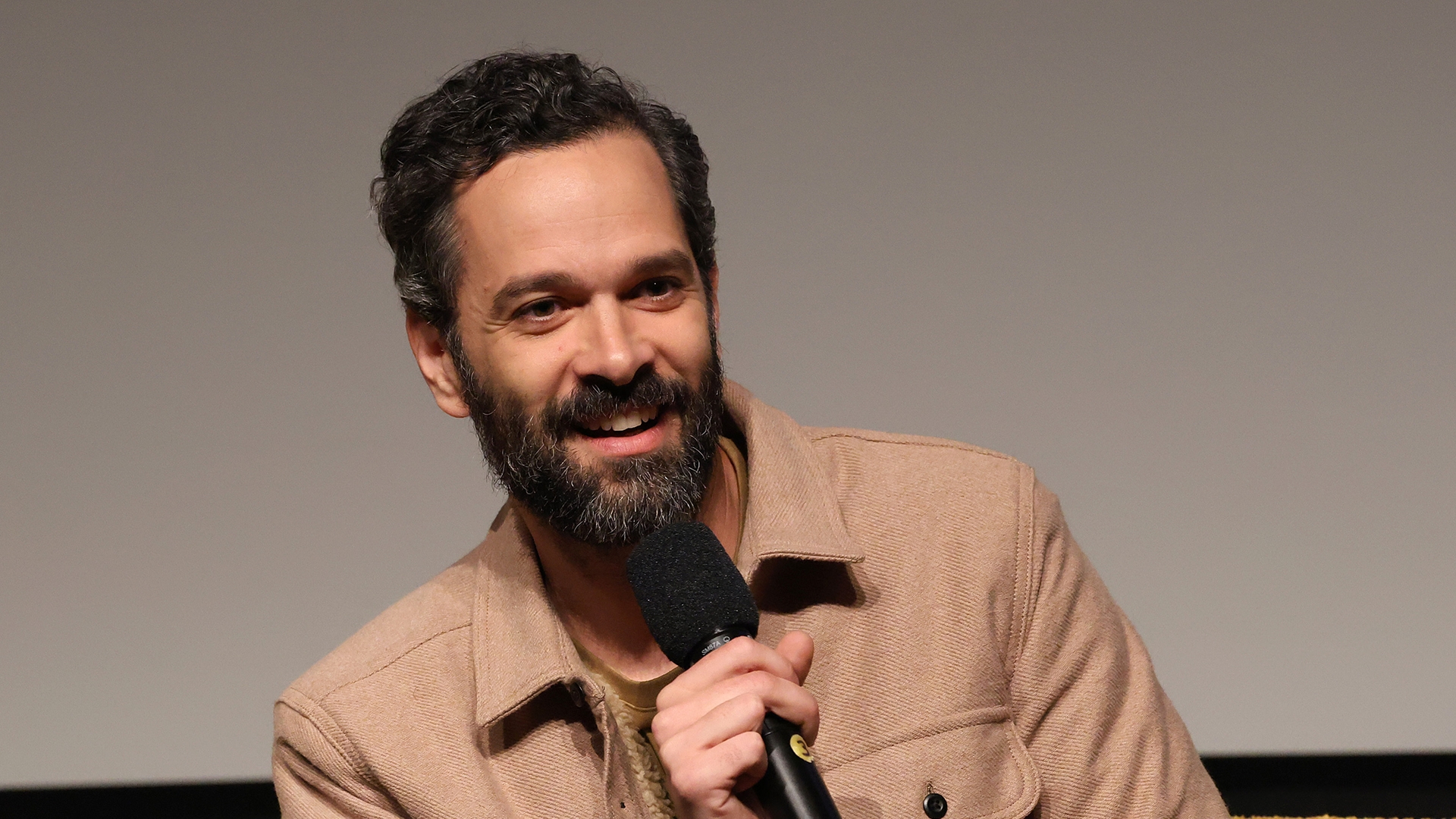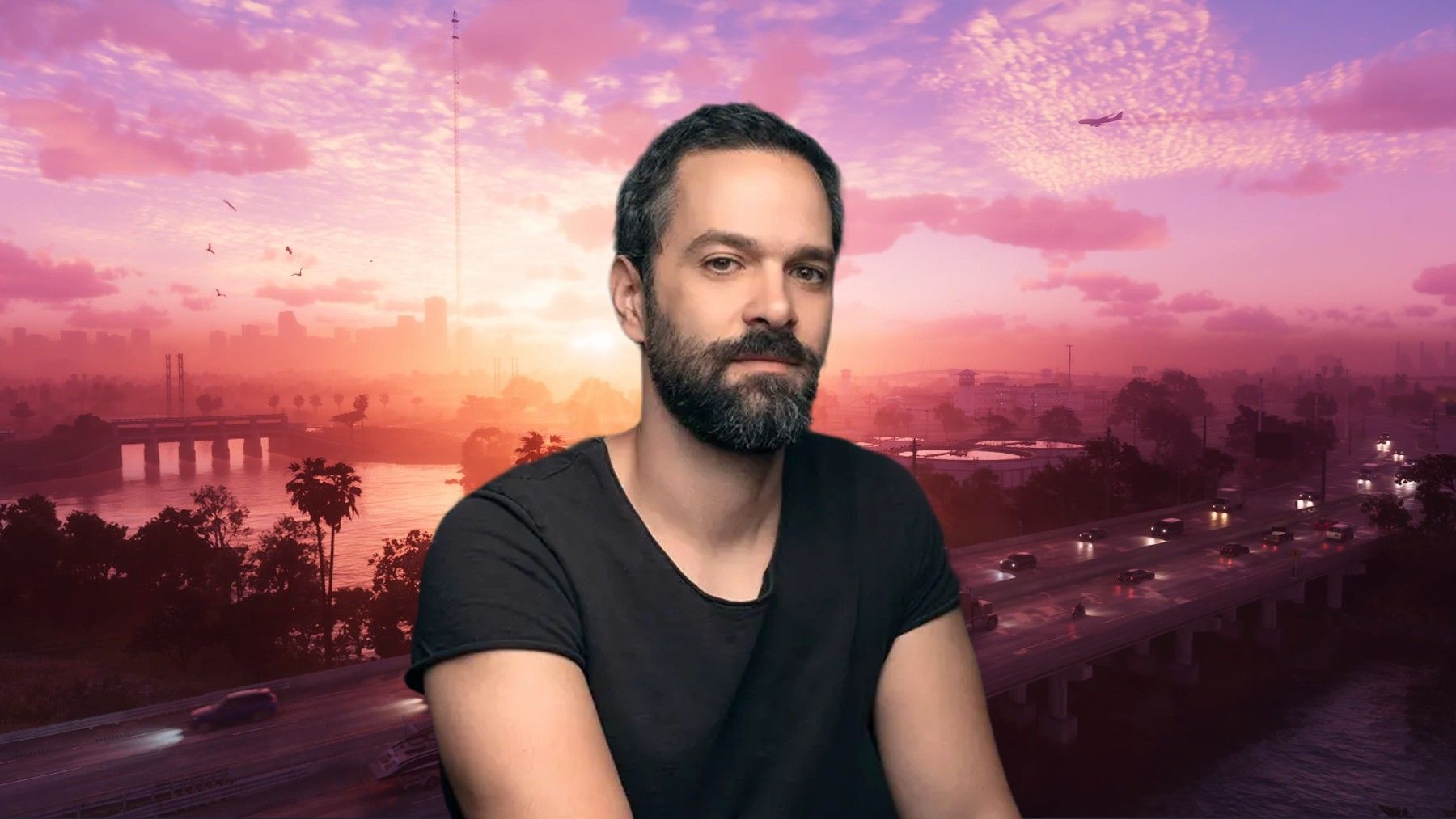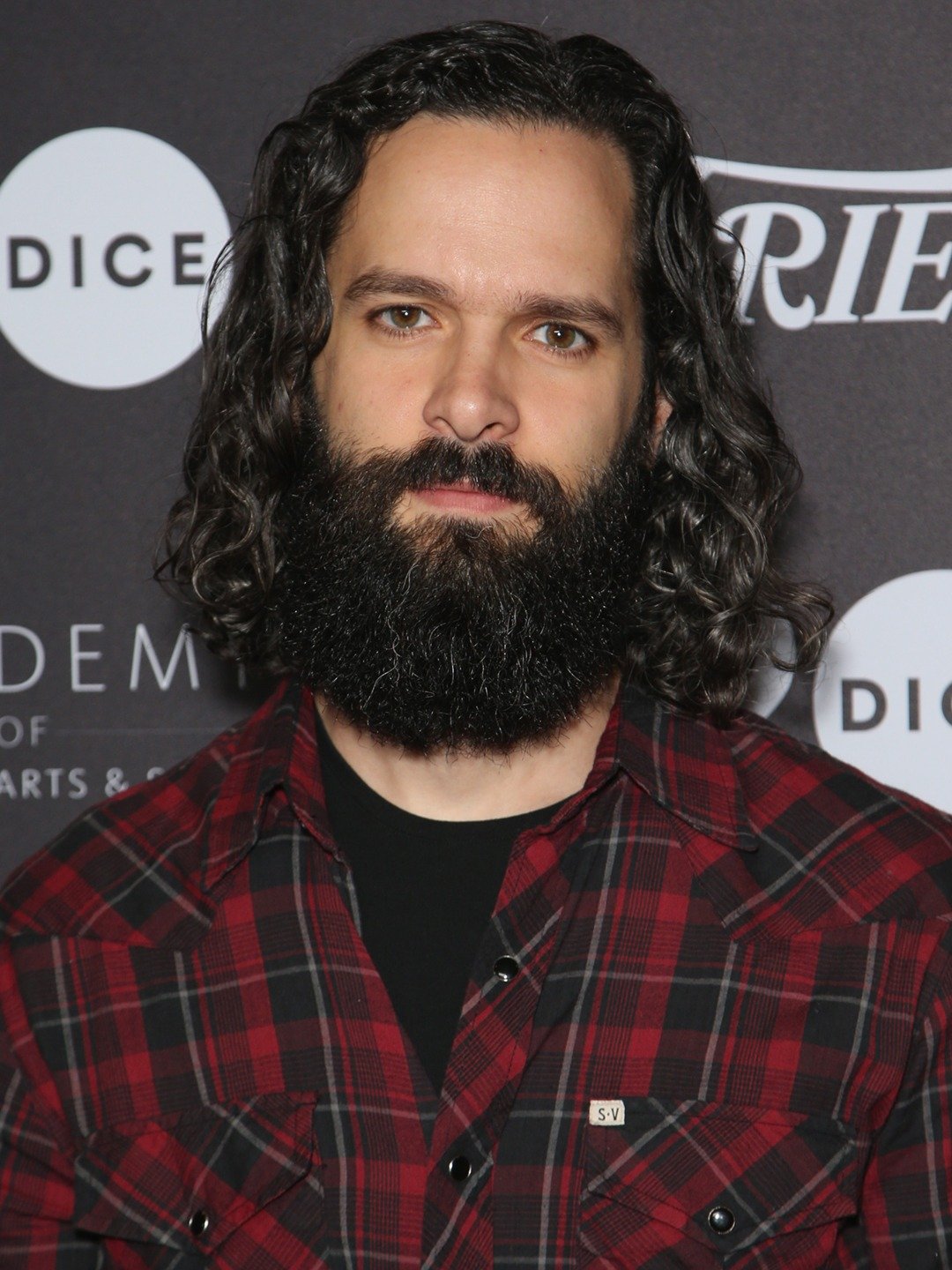Neil Druckmann: Architect Of Worlds, Master Of Controversy
In the ever-evolving landscape of video games, few names evoke as much passion, admiration, and sometimes, fierce debate, as Neil Druckmann. As a pivotal figure at Naughty Dog, the acclaimed studio behind some of PlayStation's most iconic titles, Druckmann has cemented his legacy as a visionary storyteller and a bold creative force. His journey from an aspiring game developer to the co-president of one of the industry's most revered studios is a testament to his talent, yet it's also a narrative marked by significant shifts and challenging artistic choices that have profoundly impacted both his career and the wider gaming community.
This article delves into the multifaceted career of Neil Druckmann, exploring his origins, his rise to prominence, the groundbreaking games he has helmed, and the controversies that have often accompanied his most ambitious projects. From the narrative triumphs of *The Last of Us* to the polarizing reception of its sequel, we'll examine how Druckmann's unique artistic vision has shaped modern gaming, pushing boundaries and sparking vital conversations about storytelling, representation, and player experience.
Table of Contents
- The Genesis of a Visionary: Neil Druckmann's Early Life and Influences
- Rising Through the Ranks: From Programmer to Creative Director
- The Last of Us: A Defining Moment
- The Shifting Sands of Naughty Dog: Leadership and Creative Direction
- The Last of Us Part II: A Tempest of Innovation and Division
- Beyond the Horizon: Neil Druckmann's Future at Naughty Dog
- The Druckmann Legacy: A Complex Tapestry
The Genesis of a Visionary: Neil Druckmann's Early Life and Influences
Born in Israel, Neil Druckmann's path to becoming one of the most influential figures in the video game industry was shaped by a blend of academic pursuit and a deep-seated passion for storytelling. His early life experiences and education laid the groundwork for the complex narratives and character-driven experiences that would become his hallmark. To truly understand the architect, one must first look at the foundations of his craft.
- Jessika Rains Nude
- Photos Of Diana Ross And Family
- O Leary And Sons
- Jennifer Anistons Brother
- Mary Kate Olsen In Bikini
Personal Data & Biodata: Neil Druckmann
| Full Name | Neil Druckmann |
| Nationality | American (born in Israel) |
| Occupation | Video Game Director, Writer, Programmer, Co-President of Naughty Dog |
| Known For | The Last of Us series, Uncharted 4: A Thief's End, Jak series |
| Education | Carnegie Mellon University (ETC - Entertainment Technology Center) |
| Notable Influence | George A. Romero (during graduate studies) |
Druckmann's academic journey led him to Carnegie Mellon University's Entertainment Technology Center (ETC), a program renowned for fostering interdisciplinary talent in interactive entertainment. It was here, during his graduate studies, that a pivotal influence emerged: the legendary "King of Zombie Films," George A. Romero. The opportunity to learn from Romero, a master of horror and social commentary through the zombie genre, proved instrumental. Indeed, as some online discussions highlight, *The Last of Us* is deeply rooted in this period of Neil Druckmann's life, with the core concept of the game being "Neil Druckmann's own story," conceived and developed during his time at CMU ETC.
This early exposure to profound narrative structures and the exploration of human nature under extreme pressure would later manifest in his groundbreaking work, particularly in the post-apocalyptic settings he would become famous for. It's clear that even before joining Naughty Dog, Druckmann was honing a distinct voice, one that sought to transcend conventional genre tropes and delve into the moral complexities of survival.
Rising Through the Ranks: From Programmer to Creative Director
Neil Druckmann's professional journey at Naughty Dog began in 2004 as a programmer. His early contributions to the studio included work on the *Jak* series, specifically *Jak 3* and *Jak X: Combat Racing*. While these roles were primarily technical, they provided him with an invaluable understanding of game development from the ground up.
However, it was his transition into design and writing that truly set the stage for his rise. Druckmann's knack for storytelling and character development quickly became apparent. He contributed to the critically acclaimed *Uncharted: Drake's Fortune* and later became co-lead designer and co-writer for *Uncharted 2: Among Thieves*. These experiences allowed him to refine his craft, working alongside industry veterans and absorbing the studio's philosophy of cinematic storytelling and meticulous attention to detail. His growing influence within Naughty Dog was undeniable, laying the groundwork for him to eventually take the reins of some of the industry's most anticipated titles.
The Last of Us: A Defining Moment
Crafting a Post-Apocalyptic Masterpiece
The release of *The Last of Us* in 2013 marked a watershed moment for Naughty Dog and for Neil Druckmann personally. As the creative director and writer, Druckmann was instrumental in shaping a narrative that transcended typical video game storytelling. The game, set in a post-apocalyptic world ravaged by a fungal infection, followed the perilous journey of Joel, a hardened survivor, and Ellie, a young girl immune to the infection. It was a brutal, beautiful, and emotionally resonant experience that captivated critics and players alike.
The game's success was not just commercial; it was a critical darling, praised for its mature themes, compelling characters, and groundbreaking narrative. Many hailed it as a benchmark for storytelling in the medium, proving that video games could deliver narratives as complex and impactful as those found in film or literature. For Neil Druckmann, *The Last of Us* was the culmination of years of development, a project where his unique vision truly came to fruition, drawing directly from his earlier inspirations and academic pursuits.
The Narrative Core and Its Impact
*The Last of Us* delved deep into themes of survival, morality, love, and loss. It challenged players to confront difficult ethical dilemmas and explored the dark corners of human nature. The relationship between Joel and Ellie formed the emotional core, evolving from a reluctant partnership to a profound father-daughter bond, albeit one built on morally ambiguous choices. This focus on intimate character drama against a backdrop of widespread devastation resonated deeply with audiences.
The game's narrative structure, pacing, and willingness to embrace morally grey areas set it apart. It pushed the boundaries of what players expected from a video game story, proving that the medium was capable of delivering profound emotional experiences that lingered long after the credits rolled. Its success cemented Neil Druckmann's reputation as a master storyteller, capable of crafting narratives that were both deeply personal and universally resonant.
The Shifting Sands of Naughty Dog: Leadership and Creative Direction
While *The Last of Us* solidified Neil Druckmann's standing, his increased prominence within Naughty Dog also coincided with significant internal shifts. The studio, known for its collaborative environment, began to see a change in its creative leadership. A notable event that highlighted this transition was the departure of Amy Hennig, a veteran writer and creative director largely responsible for the success of the *Uncharted* series. Her exit, amidst the development of *Uncharted 4: A Thief's End*, was a pivotal moment.
As some online discussions suggest, "whether due to internal political struggles or simply a clash of ideas, Amy Hennig's departure and the rise of Neil Druckmann and Bruce Straley almost completely determined the direction of *Uncharted 4*." This period saw what some perceived as "The Last of Us team" taking a more dominant role in shaping *Uncharted 4*, a game that, despite its critical acclaim, also experienced significant delays. This shift in creative control, moving away from what some considered Naughty Dog's "original aesthetic" – one akin to the "Indiana Jones era" with its focus on "men, women, guns, and adventure" – became a point of contention for long-time fans.
The sentiment among some was that Neil Druckmann's "forced transformation" away from these "old-school man's stories" not only altered the studio's creative direction but also led to significant internal changes, with claims of "driving away 70% of old employees." While such figures are difficult to verify independently, the perception of a substantial shift in the studio's culture and creative philosophy under Druckmann's increasing influence is a recurring theme in fan discussions. This period marked Naughty Dog's evolution, for better or worse, into a studio more aligned with the darker, more character-driven narratives that Neil Druckmann championed.
The Last of Us Part II: A Tempest of Innovation and Division
Ambition Meets Backlash: The Game's Controversial Narrative
If *The Last of Us* was a defining moment, its sequel, *The Last of Us Part II*, released in 2020, was a seismic event. As the sole creative director and co-writer, Neil Druckmann pushed the boundaries of storytelling even further, crafting a narrative that was uncompromisingly bleak, morally ambiguous, and deeply challenging. The game garnered widespread critical acclaim, praised for its technical prowess, emotional depth, and daring narrative choices. However, it also ignited an unprecedented firestorm of controversy among a segment of its fanbase.
The core of the backlash stemmed from the game's narrative decisions, particularly its treatment of beloved characters and its exploration of themes like revenge, trauma, and cycles of violence. Many players found the story intentionally provocative, feeling that it "rubbed chili water on players' pleasure points" and aimed to "make players uncomfortable." This sentiment was often coupled with accusations that the game was pushing a "non-mainstream script" under the guise of "political correctness," a label that some critics of the game vehemently argued it didn't deserve. Some even went so far as to suggest that Neil Druckmann's intention was to "recreate 'Gamergate'," implying a deliberate provocation of the player base.
The game's narrative choices, including the introduction of new characters and the subversion of expectations, alienated a significant portion of the audience who had deeply invested in the original game's characters and world. The division was stark: on one side, critics lauded its brave and mature storytelling; on the other, many players felt betrayed, viewing the narrative as a deliberate affront to their enjoyment and expectations. This polarized reception underscored Neil Druckmann's willingness to prioritize artistic vision over universal audience satisfaction, a trait that has become a defining characteristic of his recent work.
Neil Druckmann's Response to the Controversy
In the wake of the intense backlash, Neil Druckmann did not shy away from addressing the controversy. In interviews, such as one with The Washington Post, he spoke about the delicate balance between achieving commercial success and creating challenging, thought-provoking experiences. He acknowledged the divisive nature of *The Last of Us Part II*, stating that the goal was never to please everyone, but rather to tell a story that felt authentic and impactful, even if it meant making players uncomfortable.
Druckmann's stance suggested a commitment to artistic integrity, even in the face of significant public outcry. This approach, where the creator stands firm on their vision despite audience displeasure, can be likened to the analogy of "some parents protecting their 'bear kids'," where the focus is not on "forcefully educating those parents" or changing the "bear kid." In this context, Naughty Dog and Sony, by largely standing by Druckmann and the game, seemed to prioritize the creative vision and critical success over mollifying every disgruntled fan. This resolute position further solidified Neil Druckmann's image as a director unafraid to challenge conventions, even if it meant alienating a segment of his audience.
Beyond the Horizon: Neil Druckmann's Future at Naughty Dog
The landscape at Naughty Dog continues to evolve, and with it, Neil Druckmann's role has become even more central. A significant development occurred at the end of 2023 when Evan Wells, the long-serving co-president of Naughty Dog, announced his retirement from the studio. This transition effectively positions Neil Druckmann as an even more prominent figure in the studio's leadership, potentially making him the sole president or at least the most influential creative voice moving forward.
This shift raises intriguing questions about the future direction of Naughty Dog. With Druckmann at the helm, it's widely expected that the studio will continue to pursue narrative-driven, character-focused games that are willing to tackle complex and often challenging themes. While specific details about Naughty Dog's next major project remain under wraps, the industry speculates on a new single-player IP, a potential *The Last of Us Part III*, or even a return to a beloved franchise with a fresh perspective. Given Druckmann's track record, whatever comes next is likely to be ambitious and, quite possibly, divisive.
The fan base remains deeply split on the prospect of Neil Druckmann continuing to lead. Some, perhaps with a touch of sarcasm born from past disappointments, might echo sentiments found online: "It's best to let Neil continue to lead the next works, keep stacking buffs. I raise both hands in support, since I wasn't planning on spending money on the next work anyway." This reflects a segment of the audience that, while acknowledging his creative freedom, has become disengaged from the direction his narratives have taken. Others, however, eagerly anticipate his next move, trusting his vision to deliver another groundbreaking experience, regardless of the emotional cost.
The Druckmann Legacy: A Complex Tapestry
Neil Druckmann's legacy in the video game industry is undeniably complex. He is a creative force who has consistently pushed the boundaries of interactive storytelling, demonstrating that games can be profound artistic expressions capable of eliciting deep emotional responses and sparking crucial conversations. His work on *The Last of Us* series, in particular, has redefined what many thought was possible in terms of narrative depth and character development within the medium.
Yet, his legacy is also marked by controversy and division. His willingness to challenge player expectations, to subvert tropes, and to explore difficult themes has, at times, alienated a significant portion of the very audience he seeks to engage. The debates surrounding *The Last of Us Part II* are a testament to the powerful impact of his artistic choices, illustrating how a singular creative vision can both inspire adoration and provoke intense backlash. Neil Druckmann embodies the modern auteur in gaming – a figure whose personal vision is so potent that it shapes not just the games themselves, but also the broader discourse around them.
Ultimately, Neil Druckmann stands as a testament to the power of artistic conviction. Whether you admire his bold narrative choices or find them challenging, there's no denying his profound influence on the gaming landscape. He has consistently demonstrated a commitment to pushing the medium forward, even if it means navigating the turbulent waters of public opinion. His journey is a compelling narrative in itself, one that continues to unfold with each new project, solidifying his place as one of the most discussed and impactful figures in contemporary video games.
Conclusion
From his early days influenced by George A. Romero to his current role as a leading figure at Naughty Dog, Neil Druckmann has carved out a unique and often contentious path in the video game industry. He is a storyteller who dares to delve into the uncomfortable, to challenge preconceptions, and to prioritize artistic integrity above all else. His work, particularly *The Last of Us* and its polarizing sequel, has undeniably left an indelible mark on gaming, elevating the medium's narrative potential while simultaneously sparking fervent debate among its most passionate followers.
The story of Neil Druckmann is far from over. As Naughty Dog's creative direction increasingly rests on his shoulders, the gaming world watches with bated breath, eager to see what new worlds he will craft and what new conversations he will ignite. His legacy will undoubtedly be one of innovation, courage, and perhaps, enduring controversy. What are your thoughts on Neil Druckmann's impact on gaming? Share your perspective in the comments below, and if you found this exploration insightful, please consider sharing it with fellow gaming enthusiasts or exploring other articles on our site that delve into the fascinating world of game development.
- Name That Porn
- Did Kate Hudson Get A Boob Job
- Girlfriend Sexy
- Bindi Irwin Health
- Cast Of The Adams Family

Neil Druckmann, co-creator of The Last of Us, doesn't see himself

'Jaw-Dropping' Last of Us Creator Neil Druckmann Reacts to GTA 6 Trailer

Neil Druckmann - Writer, Game Designer, Programmer, Creative Director